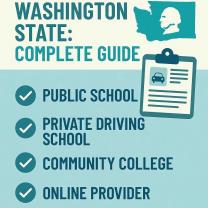What grants Am I eligible for college?
Eligibility for college grants depends on various factors, including your financial situation, academic achievement, demographic characteristics, and the specific grant programs available. Here are some common types of grants and the criteria that may make you eligible for them:
Federal Pell Grant:
- Eligibility is primarily based on financial need, as determined by the Free Application for Federal Student Aid (FAFSA). Factors considered include your family's income, family size, and the cost of attending college.
Federal Supplemental Educational Opportunity Grant (FSEOG):
- FSEOG is awarded to Pell Grant recipients with the greatest financial need. Not all schools participate in the program, so you must attend a participating institution to be eligible.
State Grants:
- Many states offer grant programs to residents based on financial need, academic achievement, or other factors. Eligibility criteria vary by state, and you'll need to check with your state's higher education agency or the college you plan to attend for specific requirements.
Institutional Grants:
- Some colleges and universities offer their own need-based grants to students. Eligibility is often determined by financial need and may require the submission of the FAFSA or the institution's own financial aid application.
Merit-Based Grants:
- Merit-based grants are typically awarded to students with outstanding academic achievements, talents, or accomplishments. Eligibility is based on your academic record, test scores, extracurricular activities, or specific talents.
Minority Grants:
- Some grant programs are designed to support students from underrepresented minority groups. Eligibility may be based on ethnicity, race, or other demographic factors.
Grants for Specific Majors or Fields:
- Certain grants are available to students pursuing particular majors or fields of study, such as STEM (Science, Technology, Engineering, and Mathematics) disciplines. Eligibility may be based on your chosen major or career goals.
Grants for Military Service:
- Veterans and active-duty military personnel, as well as their family members, may be eligible for military-related grants, such as the Post-9/11 GI Bill or the Military Tuition Assistance Program.
Grants for Special Circumstances:
- Some grant programs are available to students facing special circumstances, such as foster youth, individuals with disabilities, or students from low-income families.
Grants for Specific Activities:
- Certain organizations or foundations offer grants to students involved in specific activities or affiliations, such as members of a particular club, association, or community organization.
To determine your eligibility for college grants, you should complete the Free Application for Federal Student Aid (FAFSA) or any other required financial aid applications for your college or state. The FAFSA is a critical form that helps determine your eligibility for federal and often state financial aid programs. Be sure to submit your application by the appropriate deadline to maximize your chances of receiving grants and other forms of financial aid for college. Additionally, check with your prospective colleges and universities for information on institutional grants and other opportunities they may offer.
What college grants am I eligible for?
To determine which college grants you are eligible for, you will need to complete the Free Application for Federal Student Aid (FAFSA). The FAFSA is used to determine your financial need, which is a factor that many grants consider. You can also contact your college's financial aid office to learn about any grants that are specifically available to students at your school.
How can students determine which grants they qualify for in college?
There are a few ways for students to determine which grants they qualify for in college.
- Complete the FAFSA: The FAFSA is the primary application for federal student aid, including grants. When you complete the FAFSA, you will be automatically considered for any federal grants that you may be eligible for.
- Visit your college's financial aid website: Many colleges have a financial aid website that lists all of the grants that are available to students at their school. You can search for grants by eligibility criteria, such as major, GPA, or financial need.
- Use a grant search website: There are a number of websites that allow you to search for grants by eligibility criteria. Two popular grant search websites are Grants.gov and ScholarshipOwl.com.
Can you outline the process of researching and applying for college grants?
Here is a general outline of the process for researching and applying for college grants:
- Complete the FAFSA. This is the first step in determining which grants you are eligible for and applying for federal grants.
- Research grants. Visit your college's financial aid website and use grant search websites to find grants that you may be eligible for.
- Gather your application materials. Many grants require you to submit an application form, transcripts, letters of recommendation, and other documentation.
- Submit your applications. Be sure to meet the deadline for each grant that you apply for.
What are the different sources of college grants, including government and private grants?
There are two main types of college grants: government grants and private grants.
- Government grants: Government grants are awarded by the federal government or state governments. Some common examples of federal grants include the Pell Grant and the Federal Supplemental Educational Opportunity Grant (FSEOG).
- Private grants: Private grants are awarded by foundations, corporations, and other organizations. There are many different types of private grants, and they can be awarded based on a variety of criteria, such as major, GPA, financial need, or extracurricular activities.
How to create a strategy for obtaining the right grants to finance your college education?
To create a strategy for obtaining the right grants to finance your college education, you should first consider your financial need and your academic and extracurricular achievements. Once you have a good understanding of your strengths and weaknesses, you can start researching grants that you may be eligible for.
When researching grants, be sure to pay attention to the eligibility criteria. Some grants are only available to students with a certain GPA or major. Other grants are only available to students from certain backgrounds or with certain financial needs.
Once you have found a few grants that you are eligible for, you should start gathering your application materials. Be sure to meet the deadline for each grant that you apply for.
Here are some additional tips for creating a strategy for obtaining the right grants to finance your college education:
- Start early. The earlier you start researching and applying for grants, the better your chances of receiving funding.
- Be organized. Keep track of all of the grants that you apply for and the deadlines for each grant.
- Write strong essays. Many grant applications require you to write essays about yourself, your goals, and why you deserve the grant. Be sure to write strong essays that highlight your strengths and accomplishments.
- Follow up. After you submit your grant applications, be sure to follow up with the grant makers to confirm that they have received your application and to answer any questions that they may have.













